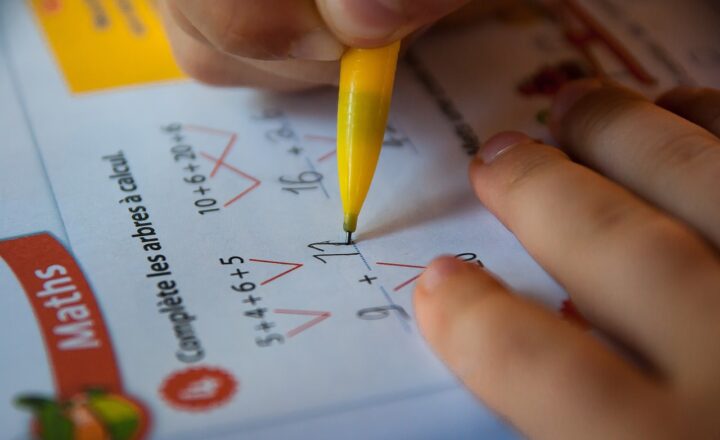Exploring the Infinite: How Mathematics Grapples with the Concept of Infinity
November 12, 2024

Infinity has been a topic of fascination and bewilderment in mathematics for centuries, captivating the minds of mathematicians, philosophers, and curious individuals alike. It represents something without any limit, an unending quantity that challenges our understanding of numbers, space, and time. This article aims to explore how mathematics grapples with the concept of infinity, its various forms, and its implications across different mathematical domains.
1. What is Infinity?
Infinity is not a number in the conventional sense; rather, it’s a concept used to describe something that is larger than any finite quantity. In mathematics, infinity appears in different contexts and can be represented in multiple ways:
- Potential Infinity: This form of infinity is never actually reached. It is often demonstrated through processes that can continue indefinitely, like counting numbers (1, 2, 3, …). As one keeps counting, there is no end in sight.
- Actual Infinity: Unlike potential infinity, actual infinity refers to a completed set or quantity, such as all the integers. This is often symbolized by the infinity symbol (∞) and is fundamental in various areas of mathematics.
- Transfinite Numbers: Introduced by mathematician Georg Cantor, these numbers extend the concept of infinity to describe sizes of infinite sets. For example, the set of all natural numbers is considered countably infinite, while the set of real numbers is uncountably infinite.
Through these forms, infinity serves as an essential tool in mathematics, opening new avenues for exploration and understanding.
2. The Role of Infinity in Calculus
Calculus, a branch of mathematics focused on change and motion, employs the concept of infinity in several ways:
- Limits: Limits are fundamental in calculus and often involve approaching infinity. For instance, the limit of the function as x approaches infinity helps in understanding the behavior of functions that increase indefinitely.
- Infinite Series: Infinite series sum an endless sequence of terms and are crucial in analyzing convergence. For example, the geometric series can converge to a finite number despite having infinitely many terms.
- Differential Equations: Some differential equations deal with infinite solutions, exploring dynamic systems that evolve over time. Such equations often model real-world phenomena where certain aspects can become infinite.
Calculus demonstrates how the concept of infinity is integral to understanding continuous changes and quantities.
3. Infinity in Set Theory
Set theory extensively studies the nature of infinite collections of objects. Georg Cantor’s work on set theory revolutionized our understanding of infinity:
- Countable vs. Uncountable Infinity: Cantor distinguished between different sizes of infinity. Countably infinite sets, like natural numbers, can be listed in order, whereas uncountably infinite sets, like real numbers, cannot be put in a one-to-one correspondence with natural numbers, indicating a larger infinity.
- Cantor’s Diagonal Argument: This argument shows that there are more real numbers than natural numbers by demonstrating that any list of real numbers can be shown to omit at least one real number, further emphasizing the richness of uncountable infinity.
- Hierarchy of Infinite Sets: Cantor proposed a hierarchy where different sizes of infinity exist, each more complex than the last, deepening our understanding of the infinite.
Cantor’s insights fundamentally altered how mathematicians view infinity, shaping both set theory and much of modern mathematics.
4. Applications of Infinity in Mathematics
The concept of infinity finds various applications within different mathematical fields:
- Topology: Infinite sets are crucial in topology, particularly in discussing concepts such as compactness and continuity, which rely on the behavior of functions as they approach infinity.
- Geometry: Infinity comes into play in projective geometry, where parallel lines are said to meet at a point at infinity, showcasing a unique perspective on space and distance.
- Analysis: In mathematical analysis, infinity is used to describe functions and sequences that converge or diverge, which is fundamental to understanding their behaviors in limits and integrals.
These applications underline the fact that infinity is not merely a theoretical curiosity; instead, it is central to understanding various mathematical principles.
5. Philosophical Implications of Infinity
The concept of infinity extends beyond mathematics into philosophy, provoking significant questions about existence, the universe, and even time:
- The Nature of the Infinite Universe: Philosophers ponder whether the universe itself is infinite or finite. This inquiry touches on questions regarding cosmology and the limits of human understanding.
- Infinity and Time: Some philosophers discuss the implications of an infinite past or future on concepts of time and existence. Can time itself be infinite, or is it bounded?
- Mathematical Infinity and Reality: The disparity between mathematical infinity and physical reality invites debate on whether concepts like actual infinity can exist in the real world. Is it merely a tool for analysis without physical embodiment?
These discussions intertwine mathematics and philosophy, highlighting how infinity invites broader reflections on existence itself.
Conclusion
Infinity stands as a profound and complex concept that challenges our understanding of mathematics and philosophy. From calculus to set theory, its implications reverberate through multiple fields, offering insights into the very nature of existence. As mathematicians continue to explore the nuances of infinity, we find that it is not just a concept that exists in abstract theories, but also a lens through which we can comprehend the vastness of the universe and our place within it. The ongoing journey into the infinite invites us to reflect on our perceptions, knowledge, and ultimately, the limits of human understanding.
Whether in the realms of mathematics, philosophy, or beyond, the allure of infinity remains irresistible, encouraging endless exploration and discovery.






